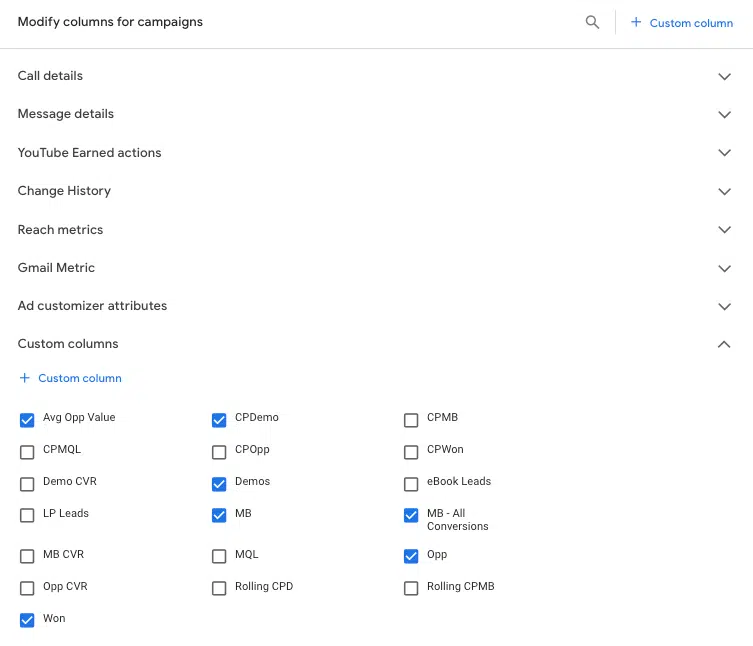
Performance Max for B2B: 4 best practices
Google strong-armed ecommerce marketers into Performance Max campaigns in 2022 by deprecating Smart Shopping and Local campaigns in favor of fewer levers and more AI-driven results.
As I wrote in a column looking back on Google’s biggest 2022 moves, most advanced search marketers begrudged this direction since more controls provide good marketers more room to outpace their peers, giving their brands a competitive edge.
B2B marketers weren’t nearly as broadly impacted by the move to Performance Max, since their old campaign structures remained unchanged by Google.
There’s no denying, however, that the writing is on the wall. Google is moving hard toward machine learning and AI, which means Performance Max may well be the lay of the entire Google search land in the near future.
So as we get into the teeth of 2023, how should B2B marketers approach Performance Max?
Get the daily newsletter search marketers rely on.
Contents [show]
Failing to plan might be planning to fail
If I were a betting person, I’d put down some money on the idea that Google will begin steering B2B campaigns toward Performance Max this year.
If that happens, marketers who are more aggressive in familiarizing themselves with the ins and outs will have a leg up when Google takes away other campaign options.
If your search campaigns are in a position to do so, I’d suggest you begin to test Performance Max ASAP.
That said, here are some conditions I strongly recommend you meet before you devote any budget to testing:
- You must have fully funded search campaigns to justify moving some discretionary budget to Performance Max. This means that you’ve built out all the keyword themes that make sense and have achieved solid market share for them. In other words, if you have a small budget, don’t compromise the pursuit of your full search opportunity at hand by testing Performance Max campaigns.
- Your account has a healthy volume of conversion data through search.
- For reasons we’ll get into in a minute, you must have reliable offline conversion data syncing to your account.
- To engage the right people, you must have good, rich audience lists and a solid definition of your ICP.
If you meet all these conditions, you’re good to go – with some additional caveats and best practices I’ll spell out now.
1. Stay skeptical
The idea behind Performance Max is that it delivers your ads to the right people wherever they are – Discover, Gmail, Maps, YouTube, Display Network, etc.
You’re using automatic bidding and trusting that Google’s algorithm can discern valuable levels of intent.
That said, Google’s algorithm is still learning, and it has built a history of optimizing for spend over efficiency.
As you approach Performance Max, look for ways to strong-arm the algorithm into doing what you want it to.
2. Get your first-party data ready
CRM data is vital for Performance Max campaigns in general for a couple of reasons, both of which apply in force for B2B – audience quality and offline conversions.
Let’s tackle offline conversions first. If we simply rely on pixels that fire for leads as signals for Performance Max, we’ll set ourselves up for failure.
Consider the lead spam most B2B campaigns have to sift through, then understand that Performance Max will take the path of least resistance to get the “desired” action.
Without integrating a layer of CRM data and telling Performance Max to optimize toward MQLs, SQLs or opportunities (essentially, whatever your most valuable stage is that also carries enough data volume for PMax to use effectively), the system will optimize toward leads, using up your budget to keep bringing in ROI-unfriendly amounts of spam.
On the audience side, remember, Performance Max uses the signals you give to find the right users. Signals might incorporate audience lists like current customers, closed/won opportunities, etc.
Performance Max, like Similar Audiences, isn’t constrained to the audience lists you give Google. It might even be a little broader than Similar Audiences, given that it extends across GDN, Gmail, and YouTube.
So, button up your lists and make sure the common attributes are clear enough for Performance Max to read and react to in its targeting.
The upshot? Google doesn’t have great built-in B2B targeting, so stay away from using their audiences and give it enough volume and clarity to work with.
3. Experiment
When approaching Performance Max setup, keep in mind that you can do experiments.
But there’s a caveat – you only have visibility into results at the campaign level. Thus, I recommend testing at least two Performance Max campaigns, each relying on different audience signals, to see which is more effective.
Note: To make the two-experiment setup work, you’ll have to be able to carve out enough budget to make the findings clear and actionable.
4. Get familiar with reporting – and act on results quickly
One of Google’s better releases in 2022, Custom Columns, allows advertisers to see offline conversions at the campaign level, even for Performance Max campaigns:

Beyond that, Performance Max reporting diverges from familiar ad group-level reporting and breaks everything into asset groups, providing a view of all provided assets and possible combinations.

We’ve found the campaign-level view to be most helpful, which is why I recommend starting with at least two campaign-level experiments.
Once you’re relatively fluent with the reporting structure, keep a close eye on quality and opportunities to add negatives, whether keywords or placement exclusions, to shore up efficiency.
Making Performance Max work for B2B
My overall take on Performance Max is that Google hasn’t yet put much effort into making the product work for B2B or lead gen.
Make sure to keep a close eye on results and quality, using any levers in your control to keep Google focused on your best potential user. Establish clear goalposts and standards for when to pull the plug.
In a best-case scenario, Performance Max will be a pleasant surprise and enable you to access a larger pool of valuable users at reasonable CPLs.
But if you take my advice, even a worst-case scenario with some fruitless spend will give you valuable insights into the future of Google for B2B.
Opinions expressed in this article are those of the guest author and not necessarily Search Engine Land. Staff authors are listed here.
New on Search Engine Land
About the author

Laura Schiele, Head of Paid Acquisition at Jordan Digital Marketing, has nearly a decade of experience in paid media strategy and execution in both agency and in-house accounts and uses advanced analytics skills to scale growth within efficiency goals across Google, LinkedIn, Facebook, and more. Laura manages a large team of paid media experts remotely from her home in Burlington, VT.





